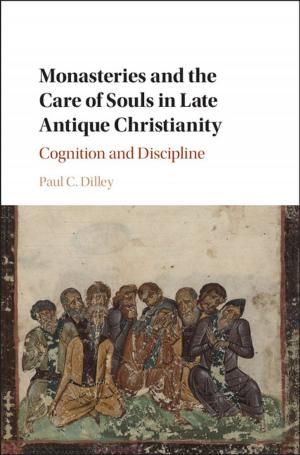Austrian Capital Theory
A Modern Survey of the Essentials
Business & Finance, Economics, Theory of Economics| Author: | Peter Lewin, Nicolas Cachanosky | ISBN: | 9781108752732 |
| Publisher: | Cambridge University Press | Publication: | January 31, 2019 |
| Imprint: | Cambridge University Press | Language: | English |
| Author: | Peter Lewin, Nicolas Cachanosky |
| ISBN: | 9781108752732 |
| Publisher: | Cambridge University Press |
| Publication: | January 31, 2019 |
| Imprint: | Cambridge University Press |
| Language: | English |
This Element presents a new framework for Austrian Capital Theory, starting from the notion that capital is value. Capital is the value attributed by the valuer at any moment in time to the combination of production-goods and labor available for production. Capital is the result obtained by calculating the current value of a business-unit or business-project that employs resources over time. It is the result of a (subjective) entrepreneurial calculation process that relates the flow of consumptions goods to the value of the productive resources that will produce those consumptions goods. The entrepreneur is a ubiquitous calculating presence. In a review of the development of Austrian Capital Theory, by Carl Manger, Eugen von Böhm-Bawerk, Ludwig von Mises, Friedrich Hayek, Ludwig Lachmann as well as recent contributions, the Element incorporates the seminal contributions into the new framework in order to provide a more accessible perspective on Austrian Capital Theory.
This Element presents a new framework for Austrian Capital Theory, starting from the notion that capital is value. Capital is the value attributed by the valuer at any moment in time to the combination of production-goods and labor available for production. Capital is the result obtained by calculating the current value of a business-unit or business-project that employs resources over time. It is the result of a (subjective) entrepreneurial calculation process that relates the flow of consumptions goods to the value of the productive resources that will produce those consumptions goods. The entrepreneur is a ubiquitous calculating presence. In a review of the development of Austrian Capital Theory, by Carl Manger, Eugen von Böhm-Bawerk, Ludwig von Mises, Friedrich Hayek, Ludwig Lachmann as well as recent contributions, the Element incorporates the seminal contributions into the new framework in order to provide a more accessible perspective on Austrian Capital Theory.















